Texas Foster Care
In April 2004 Texas Comptroller Carole Keeton Strayhorn issued a report called "Forgotten Children", detailing at length the conditions under which Texas keeps its foster children. You can read the full report, "Forgotten Children" (pdf 48 megabytes) from her website, or our local copy captured in April 2004. Here we present some of the photographs from the report. To see much more detail, click on any of the pictures (most browsers require a second click).
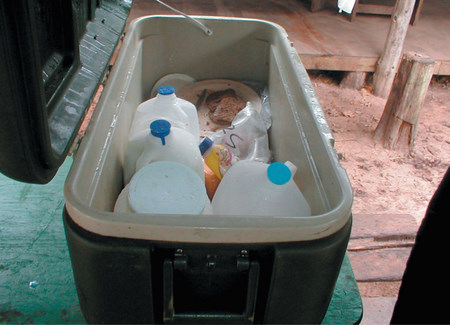
Perishable food storage at a therapeutic campsite.
Foster children at this therapeutic camp cook their own meals at night and
on weekends. The Comptroller opened this “ice chest” during an unannounced
visit in the middle of the day. There was no ice in the cooler. According
to DPRS standards, when ice chests are used, adequate ice must be provided.
Left-over meat patties were not wrapped. In addition to the daily rate that
includes room and board, providers are reimbursed through the USDA free- and
reduced-price lunch and breakfast program. This facility also receives
charitable donations and weekly donations from the local food bank.
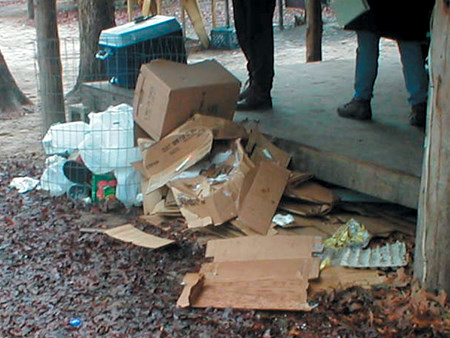
Food preparation area at a therapeutic campsite, littered with trash.
DPRS standards for permanent camps require trash to be stored in containers
with lids. This facility receives a daily rate for each child ranging from
$80 to $115.
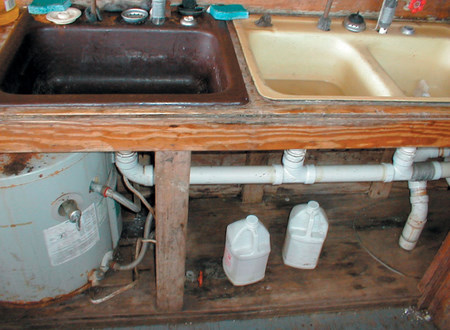
Food Preparation at a therapeutic campsite.
Children at this facility prepare their own meals at night and on weekends
in this area. This facility receives a daily rate for each child ranging
from $80 to $115.
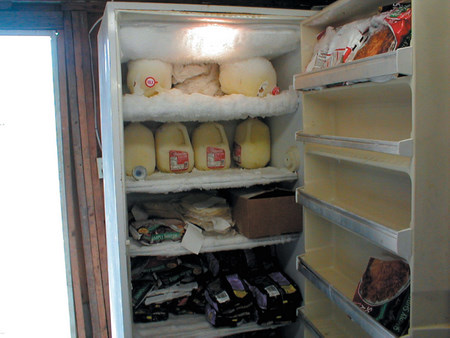
Freezer at a therapeutic campsite.
According to the National Dairy Council, freezing milk is not recommended.
“It causes undesirable changes in milk’s texture and appearance.”
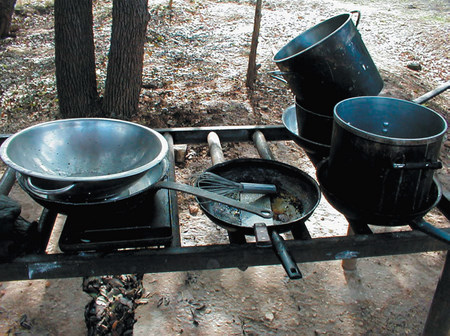
Cookware that is left outside at a therapeutic campsite.
Permanent camp standards require kitchenware to be clean, sanitized and
properly stored. This facility receives a daily rate from DPRS for each
child ranging from $80 to $115.
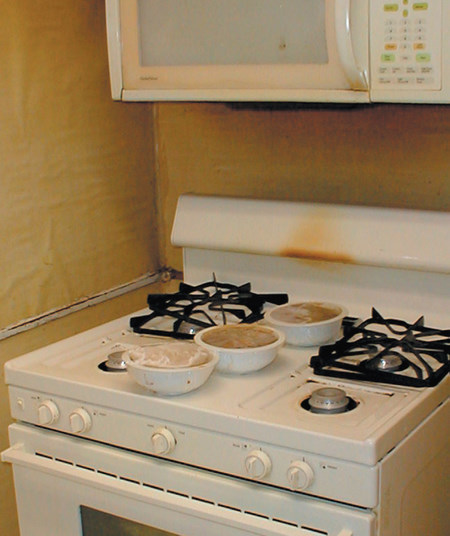
A stove at a residential treatment center.
This is the only stove at the facility, which is licensed to care for more
than 40 children. More than 10 children at this facility were treated for
food poisoning.
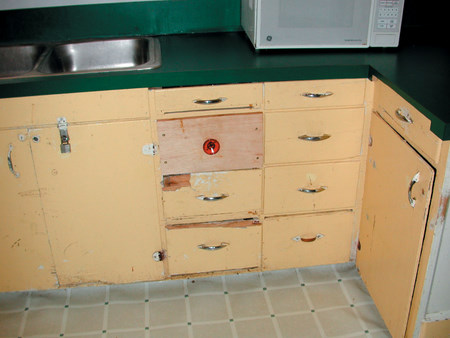
Kitchen at a residential treatment center that serves foster children.
This facility receives a daily rate from DPRS for each foster child ranging
from $80 to $115. This facility has been found to be deficient in meeting
standards for food preparation.
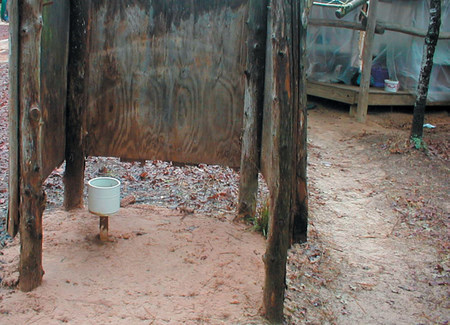
“Pee Wall” at a therapeutic camp.
According to DPRS rules for wilderness camps, toilet areas must be located
at least 75 feet from sleeping areas. The adjacent sleeping area is only a
few feet away. This facility receives a daily rate from DPRS for each
foster child ranging from $80 to $115. DPRS standards for permanent camps
require flush toilets if the water supply is available. There is water
available through pipes at the campsites. DPRS has been licensing camps
like this one for more than twenty years.
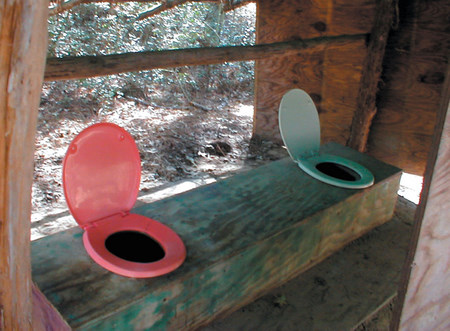
Makeshift outhouse at a therapeutic campsite.
Foster children use this facility rain or shine, 365 days a year. DPRS
standards allow permanent camps to use privies only when a water supply is
not available. Water is available at this campsite. This outhouse does not
meet Texas Department of Health standards. This facility receives a daily
rate from DPRS for each foster child ranging from $80 to $115.
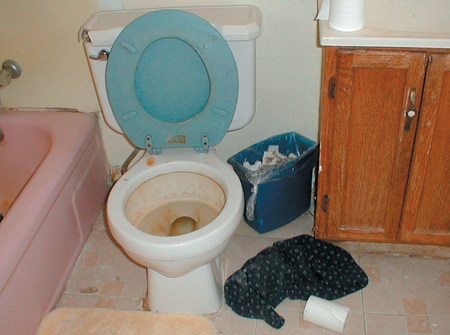
Bathroom at a residential treatment center that cares for both male and
female foster children.
This facility receives a daily rate from DPRS for each foster child ranging
from $80 to $115.
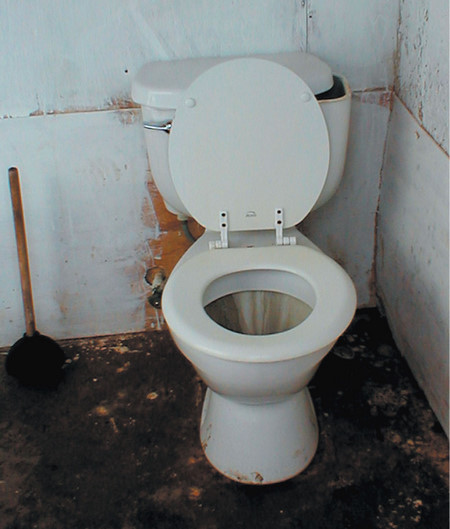
Commode at a therapeutic camp.
This facility receives a daily rate from DPRS for each foster child ranging
from $80 to $115.
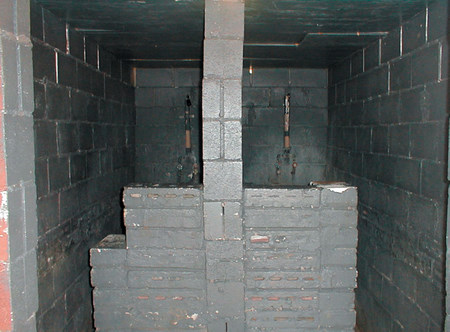
Open showers at a therapeutic campsite.
These unheated open showers are the only type available to foster children
who live at the facility year round.
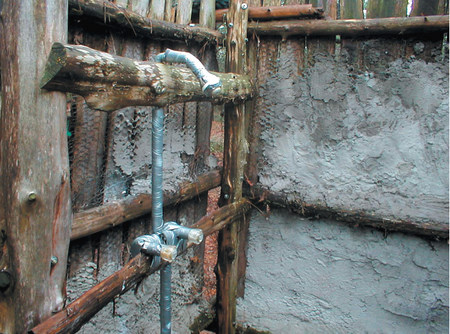
Cold-water showers used by foster children at a therapeutic campsite.
This facility receives a daily rate from DPRS for each foster child ranging
from $80 to $115.
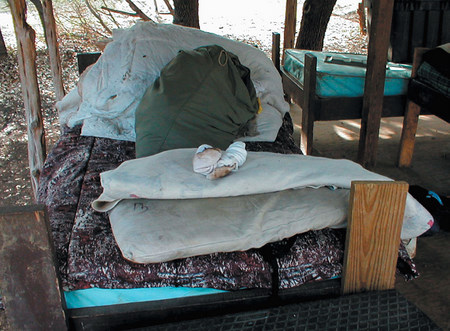
Sleeping platform at a therapeutic campsite.
DPRS standards require permanent camps to provide clean and sanitary bedding
and clean mattresses. DPRS standards for wilderness camps do not address
bedding or sleeping facilities. Foster children sleep in these conditions
365 days a year, during all types of weather.
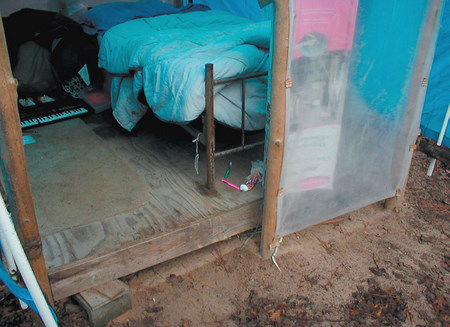
Sleeping platform at a therapeutic campsite.
Foster children have limited space for their possessions. A toothbrush and
tube of toothpaste lay on the floor near the door. During the winter,
plastic sheeting is used to provide limited protection from the cold. This
facility receives a daily rate from DPRS for each foster child ranging from
$80 to $115.
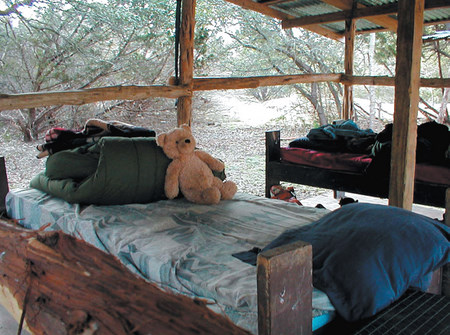
Sleeping platform at a therapeutic campsite.
This facility receives a daily rate from DPRS for each foster child ranging
from $80 to $115.
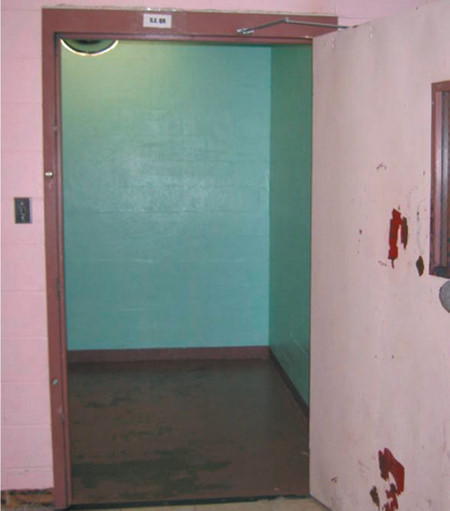
Seclusion room at a residential treatment center.
This steel door can be locked and unlocked only from the outside. There is
a small window in the door to observe children locked in the room.
According to DPRS rules, no form of seclusion may be used without
appropriate orders in the child’s record. Only a licensed psychiatrist or
licensed psychologist may write orders for the use of seclusion for a
specific child.
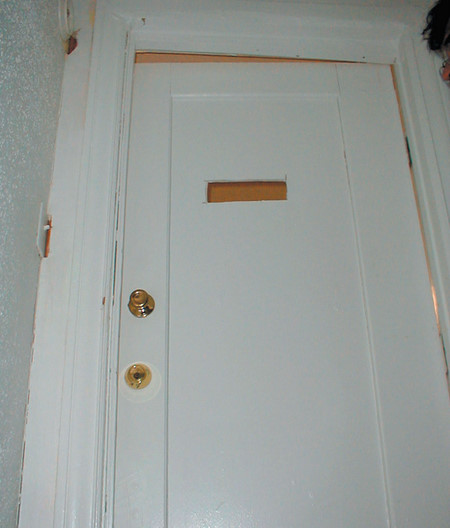
Peephole on door of attic room at a residential treatment center.
The door can be locked and unlocked only from the outside. The executive
director of this facility told the Comptroller’s review team that the
facility did not have a seclusion room.
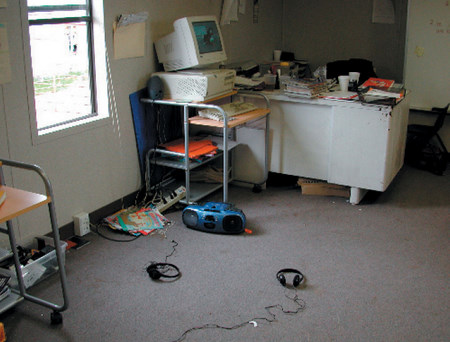
Play area and teacher’s desk at a charter school that serves foster
children.
